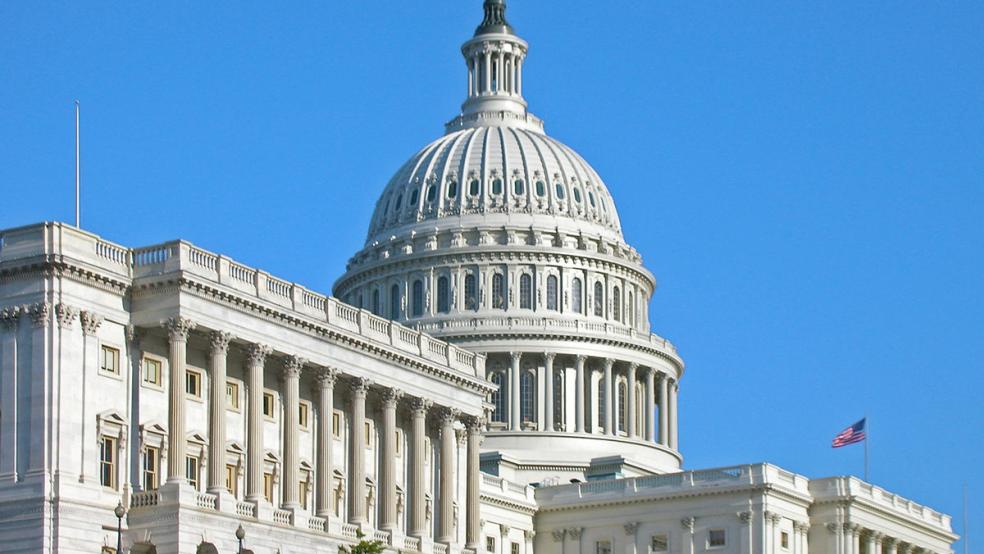The Senate Budget Committee on Friday introduced a draft budget for fiscal 2018 that sets the stage for tax reform that could increase the deficit by up to $1.5 trillion over 10 years. The GOP budget blueprint is a key step toward enacting tax changes using a process that would require only a simple majority of votes in the Senate and thus could pass without Democratic support.
“This budget resolution puts our nation on a path to balance by restraining federal spending, reducing tax burdens, and boosting economic growth,” said Sen. Mike Enzi (R-WY), chairman of the Budget Committee.
The budget projects surpluses starting in 2026, but only after factoring in economic growth effects and unspecified spending cuts. In all, the budget calls for $5.1 trillion in spending cuts. And it assumes average economic growth of 2.6 percent, higher than the 1.9 percent estimated by the Congressional Budget Office, according to The Washington Post.
“The Senate Republican budget is the clearest sign yet that Republicans are intent on pursuing a tax plan that would blow a huge hole in the deficit and stack up debt, leading to cuts in programs that middle-class Americans rely on,” Senate Minority Leader Chuck Schumer (D-NY) said. “This budget would green-light a tax scheme that could very well put Social Security, Medicare and Medicaid on the chopping block.”
Maya MacGuineas, president of the Committee for a Responsible Federal Budget, called the Senate budget “nothing short of highly irresponsible.”
“The argument being made that this massive hole in the budget will be filled in with magical economic growth is even more frightening,” she said in a statement. “Tax cuts do not pay for themselves and the President’s suggestion that we can achieve 6% economic growth, or his economic team’s assertion of sustained growth above 3%, goes against the projections of economists and independent forecasters from across the spectrum.”
The budget also instructs the Senate Energy and Natural Resources Committee to save at least $1 billion over the next 10 years. “That is widely seen as a pathway to open the Arctic National Wildlife Refuge to oil and gas drilling,” the Post reports. The draft does not include specific instructions to unlock a fast-track process on health care, meaning that it would allow Republicans to pursue only a partial repeal of Obamacare in 2018.
The budget blueprint also eliminates the requirement that the Congressional Budget Office score the budget resolution, a measure that David Kamin, a New York University law professor and former special assistant to President Obama for economic policy, said would undermine transparency and accountability.
Many reasons Sen Budget Res is bad. But, here's one hidden nugget that undermines accountability and transparency. CBO = no longer required. pic.twitter.com/JNCNuBRQiS
— David Kamin (@davidckamin) September 29, 2017





